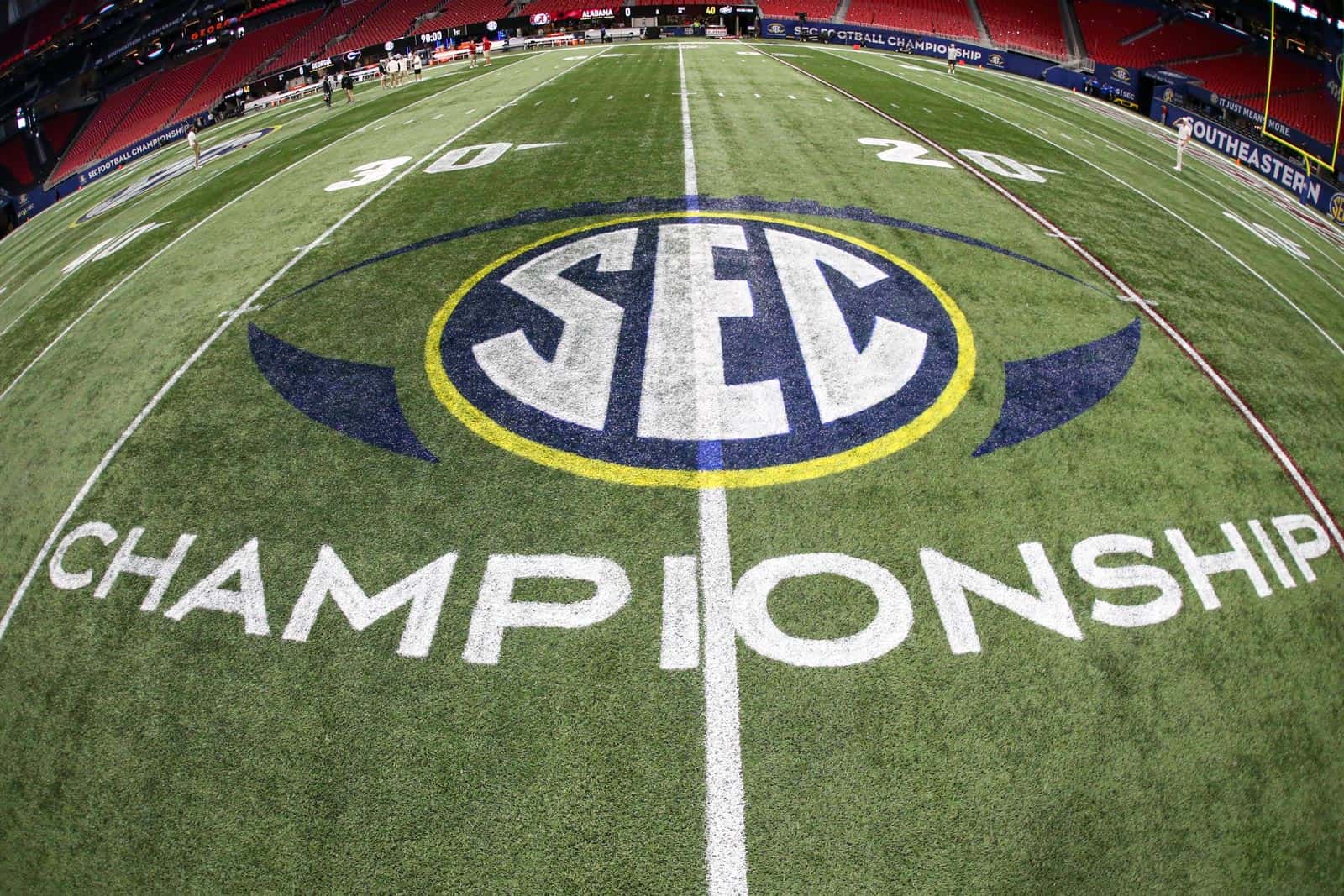In what seems like a blur, the 2023 football regular season is over and it is now conference championship time.
On Saturday, December 2, in one of the many conference championship games of the day, the top-ranked Georgia Bulldogs will play the eighth-ranked Alabama Crimson Tide in Mercedes-Benz Stadium in Atlanta, Ga.
These games have come to be more and more important each year with the creation of the four team College Football Playoff, but may possibly become less important next year when the field is expanded to 12 teams.
But where did conference championship games come from and why did they start getting played? Who came up with the idea and why?
The answer to those questions comes from an unsurprising place: the SEC.
In 1992, SEC commissioner Roy Kramer utilized a ruling by the NCAA that allowed any conference with at least 12 members to split into two six team divisions and stage a conference championship game at the end of the season. Interestingly enough, the ruling was originally meant for Division III conferences, but it applied to all NCAA member schools. In order to get to 12 teams, the SEC added the University of Arkansas and the University of South Carolina.
The thought behind the game was to provide the SEC with a uniqueness to it and also to provide a boost to get members into the national title game. The ploy, while loved by some coaches and hated by others, worked. The SEC would go on to win 16 of the next 30 national championship games from the 1992 season on.
But that first SEC title game in 1992 was almost the last, as it pitted undefeated (and potentially national championship bound) 11-0 Alabama against an 8-3 Florida team. What would happen if a three loss Florida team were to defeat undefeated Alabama and ruin their shot at their first national title since 1979? Would it have been a quick end to the conference championship games we all know?
We can only speculate as Alabama defensive back Antonio Langham intercepted a Florida pass and ran it in for the deciding score in a 28-21 Alabama victory. The Crimson Tide would roll on to defeat No. 1 Miami in the Sugar Bowl and claim the 1992 National Championship. The rest, as they say, is history.
Since 1992, the SEC Championship Game has nearly turned into a huge event, always pulling in big viewership numbers along with revenue. The 2022 championship game netted 11 million viewers, while the 2021 contest generated $26.6 million in revenue.
MATCHUP HISTORY
Unsurprisingly, Alabama leads the SEC in number of title game appearances. The Crimson Tide’s appearance on Saturday will mark their 16th time playing in the game.
Coming in second is Florida with 13, with Georgia in a close third with 12 appearances.
LSU (7), Auburn (6), Tennessee (5), Arkansas (3), Missouri (2), Mississippi State (1), and South Carolina (1) round out the list of title game appearances.
There are four teams currently in the SEC who have yet to make it to the SEC Championship Game: Kentucky, Ole Miss, Texas A&M, and Vanderbilt.
The most common matchup has been Florida-Alabama, with the title game seeing these two participants a total of 10 times throughout its history. Saturday’s Georgia-Alabama matchup will be the fourth time those schools battle it out for the title with three of those meetings coming in the last six years.
2023 MATCHUP
Date: Saturday, Dec. 2, 2023
Site: Mercedes Benz Stadium – Atlanta, GA
Time: 4:00pm ET
TV: CBS
This will be the last SEC Championship Game on CBS for the foreseeable future as ESPN will be taking over the TV rights to the game beginning next season.



One has to wonder what would have happened if that NCAA rule never existed in the first place. Would we still see Conference Championship Games? Would the SEC still have added Arkansas and South Carolina? Would the ACC have added Boston College? Would the Big Ten have added Nebraska? Would the Pac12 have added Colorado and Utah?
What a wonderful thought exercise! If someone could run those projections on what college football would look like in a world like that, that would be awesome.
I would have to think a lot of the conference realignment we have seen this year wouldn’t have happened. That was really the start of the power grabbing, money seeking decision making we see today.
My guess is that the SEC still would have added Arkansas, as they wanted out of the SWC at the time, but I don’t think they add South Carolina, because there would have been no incentive to get to 12. The Big 10 still adds Penn State. The Big 8 still absorbs TTU, Baylor, UT & A&M. The ACC still adds Miami & VT, but not BC. Texas A&M still would have left for the SEC, but not Mizzou. My guess is that the original Big 12 (minus A&M) would still be intact, the pre-2012 Big East would still be intact (with BC, Pitt, Syracuse, WVU, Cincy, Rutgers, S. Florida, Louisville, and UConn).
I hope that with the expanded playoff, conferences start getting rid of their CCGs, as they will serve little purpose with a 12 team playoff on the line.
While ESPN will produce future editions, I expect the actual broadcaster to be ABC
The 2024 SEC Championship Game was announced as ABC earlier today.